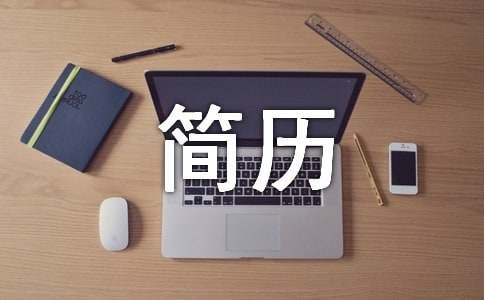- 相關(guān)推薦
英文簡(jiǎn)歷: 求職目標(biāo)要明確
“金三銀十”,對(duì)職場(chǎng)人來(lái)說(shuō),十月是個(gè)跳槽的好時(shí)候。如果你對(duì)目前的工作不滿,那么在別人都出去Happy的長(zhǎng)假,你可得要開(kāi)始準(zhǔn)備你的簡(jiǎn)歷了。關(guān)于簡(jiǎn)歷和求職信的寫(xiě)法,我們前面已經(jīng)講過(guò)很多。這次再給大家提供一些簡(jiǎn)歷tips,想要找工作的人可要看仔細(xì)了哦!

1. What IS a resume anyway?
Remember: a Resume is a self-promotional document that presents you in the best possible light, for the purpose of getting invited to a job interview. It's not an official personnel document. It's not a job application. It's not a "career obituary"! And it's not a confessional.
2. What should the resume content be about?
It's not just about past jobs! It's about YOU, and how you performed and what you accomplished in those past jobs--especially those accomplishments that are most relevant to the work you want to do next. A good resume predicts how you might perform in that desired future job.
3. What's the fastest way to improve a resume?
Remove everything that starts with "responsibilities included" and replace it with on-the-job accomplishments. (See Tip 11 for one way to write them.)
4. What is the most common resume mistake made by job hunters?
Leaving out their Job Objective! If you don't show a sense of direction, employers won't be interested. Having a clearly stated goal doesn't have to confine you if it's stated well.
5. What's the first step in writing a resume?
Decide on a job target (or "job objective") that can be stated in about 5 or 6 words. Anything beyond that is probably "fluff" and indicates a lack of clarity and direction.
6. How do you decide whether to use a Chronological resume or a Functional one?
The Chronological format is widely preferred by employers, and works well if you're staying in the same field (especially if you've been upwardly-mobile). Only use a Functional format if you're changing fields, and you're sure a skills-oriented format would show off your transferable skills to better advantage; and be sure to include a clear chronological work history!
7. What if you don't have any experience in the kind of work you want to do?
Get some! Find a place that will let you do some volunteer work right away. You only need a brief, concentrated period of volunteer training (for example, 1 day a week for a month) to have at least SOME experience to put on your resume. Also, look at some of the volunteer work you've done in the past and see if any of THAT helps document some skills you'll need for your new job.
8. What do you do if you have gaps in your work experience?
You could start by looking at it differently. General Rule: Tell what you WERE doing, as gracefully as possible--rather than leave a gap. If you were doing anything valuable (even if unpaid) during those so-called "gaps" you could just insert THAT into the work-history section of your resume to fill the hole. Here are some examples:
1993-95 Full-time parent -- or
1992-94 Maternity leave and famil
【英文簡(jiǎn)歷: 求職目標(biāo)要明確】相關(guān)文章:
明確目標(biāo)作文02-06
明確目標(biāo)作文(精選32篇)12-20
敘事作文要明確的記敘順序04-06
關(guān)于明確目標(biāo)的勵(lì)志名言(精選160句)04-10
求職要找準(zhǔn)定位01-04
求職面試要遵守的禮儀12-15
求職信用詞要恰當(dāng)08-22
求職信要怎么寫(xiě)09-23